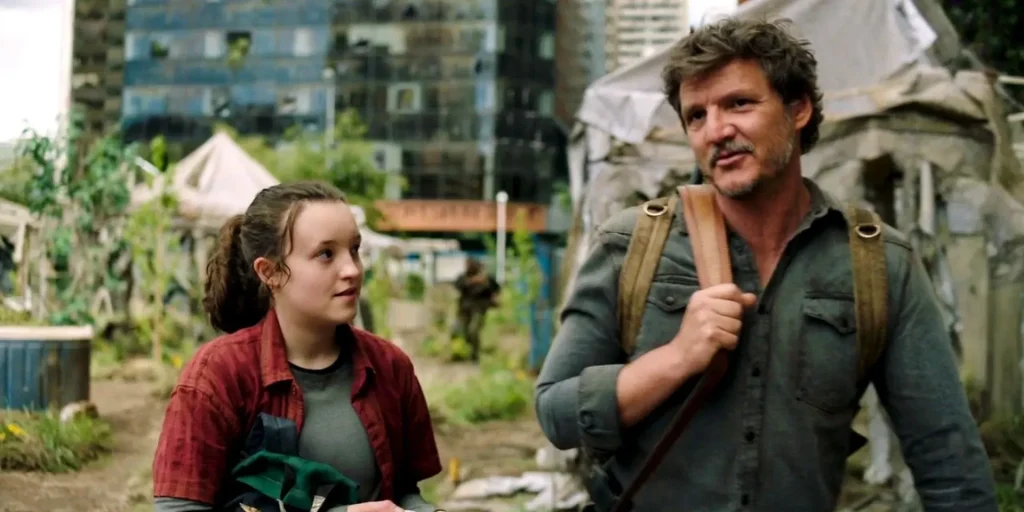The Last of Us Season 2 Finale has left viewers on the edge of their seats, breathing new life into the acclaimed HBO series. As fans reflect on the emotional twists of this season’s conclusion, they turn to showrunner Craig Mazin for insights into the creative decisions that impacted the story. In a pivotal moment laden with tension, Ellie confronts Owen and Mel, leading to shocking consequences that deviate from the original game’s narrative. For those seeking clarity on the Season 2 finale explained, a deeper dive into these significant changes reveals just how Mazin aims to heighten the drama within this powerful adaptation. However, be warned: this discussion contains major Last of Us spoilers that highlight the challenging themes of parenthood and sacrifice during a post-apocalyptic struggle.
As the curtain falls on Season 2 of the gripping series, fans are eagerly discussing the closing episode, known as the Season 2 finale of The Last of Us. This chapter exemplifies the show’s ability to convey complex emotions and moral dilemmas, ultimately leaving viewers contemplating the depths of survival and humanity. Under the expert guidance of Craig Mazin, the televised interpretation diverges from its video game origins, presenting a fresh yet harrowing perspective. An exploration of the finale reveals pivotal moments that redefine Ellie’s character and her relentless pursuit of Abby, emphasizing themes of consequence and maternal instincts. For die-hard fans and casual viewers alike, the adaptation continues to evoke profound conversations about sacrifice and the human condition in dire circumstances.
The Last of Us Season 2 Finale Explained
The Last of Us Season 2 finale delivered a gripping culmination of emotional and action-packed moments, leaving fans on the edge of their seats. Throughout this season, viewers witnessed Ellie’s transformation as she navigated the brutal post-apocalyptic world, leading up to the intense standoff with Owen and Mel. In a dramatic turn, Ellie’s choices led her down a dark path, highlighting the moral complexities of her journey. Craig Mazin, the showrunner, articulated that the changes made in the finale were deliberate choices aimed at deepening the emotional impact of the story, reinforcing the show’s exploration of sacrifice and parental love.
As the episode unfolds, Ellie’s encounter with Owen and Mel takes a sharp turn from the original game narrative. The adaptability of The Last of Us HBO in crafting these high-stakes moments reflects the creativity and vision of the team, particularly Mazin and Druckmann. By elevating the tension in the Season 2 finale, they emphasized themes of desperation and loss, critical to the storytelling. This adaptation has sparked discussions among fans, with many seeking insight into how the changes align with the source material. Understanding such nuances adds depth to the viewing experience, making it an engaging topic for both newcomers and longtime fans.
The Themes of Parenthood in The Last of Us
At the heart of The Last of Us lies an exploration of the lengths to which parents will go to protect their children. This theme resonates deeply in the Season 2 finale, especially through Mel’s heartbreaking revelation about her pregnancy and the urgency of her situation. Craig Mazin emphasized this emotional struggle during his interviews, stating that the narrative intricately weaves parenthood with dire circumstances. By presenting Ellie in a situation where she must grapple with life-or-death decisions, the show amplifies the weight of parental instincts amidst chaos.
This exploration of parental love is not just limited to Mel and her impending motherhood. Throughout both the series and the game, viewers observe how Ellie’s actions are influenced by her relationships and experiences from childhood. The sense of protection and mistrust permeates the interactions she has with each character, showcasing the harsh realities of survival in a world dictated by violence. As we reflect on these themes in the context of The Last of Us adaptation, it becomes increasingly evident that this narrative chooses to delve into the psychology of its characters, making every decision feel consequential.
The Evolution of Ellie’s Character in Season 2
Ellie’s character arc continues to evolve dramatically in Season 2 of The Last of Us, showcasing her transition from an innocent girl to a determined survivor shaped by her experiences. The power dynamics in her confrontations with Owen and Mel illustrate the inner turmoil she faces. The Season 2 finale exemplifies her confrontation with violence and moral ambiguity, as showcased in the tense moments leading to her drastic decisions. Craig Mazin’s vision aligns closely with the concept that Ellie is not merely a passive participant but an active agent whose choices ripple through the narrative.
The changes made in the adaptation reflect a careful consideration of Ellie’s journey, illustrating her growth through moments of tragedy and conflict. By pivoting away from straightforward violence to a more emotionally charged confrontation, the series not only raises the stakes but also prompts viewers to engage with Ellie’s motivations and fears. This portrayal allows fans to connect with her struggle at a deeper level, understanding that her actions stem from a combination of strength and vulnerability. As her story unfolds, audiences are left questioning what still lies ahead for Ellie in future seasons.
Crafting Tension: The Directorial Choices in Season 2 Finale
The direction and cinematography of The Last of Us HBO have been instrumental in creating a sense of tension that resonates throughout the series, particularly in the Season 2 finale. Craig Mazin and his team employed various cinematic techniques to enhance the emotional weight of scenes, especially during pivotal moments like Ellie’s confrontation with Owen and Mel. The decision to shift from a physical struggle to an emotionally charged dialogue marks an impactful directorial choice that accentuates the stakes of Ellie’s mission.
These choices underscore the creative risks undertaken in adapting the source material into a format that retains the game’s essence while providing fresh perspectives. By depicting the chaotic emotions rather than simply showcasing violence, the finale captures the complexity of human relationships amidst the backdrop of survival. This evolution in the show’s direction exemplifies how Mazin and the crew aim to push boundaries, ultimately bringing to light the internal conflicts faced by each character, culminating in a finale that prompts reflection long after the credits roll.
The Last of Us Spoilers: What They Mean for Future Seasons
As fans of The Last of Us eagerly dissect the latest season, notable spoilers from the Season 2 finale give hints about the trajectory of future plots. Key revelations such as Mel’s pregnancy and the desperate circumstances surrounding her death have left audiences speculating about how these events will impact Ellie’s worldview in subsequent seasons. Spoilers not only serve as talking points among fans but also deepen the understanding of character motivations that are pivotal to the overarching storyline.
With each spoiler unveiled, viewers are left pondering how it shapes the relationships and actions of our protagonists. As the narrative progresses, the implications of these shocking moments will undoubtedly haunt Ellie and inform her decisions as she grapples with the loss and guilt stemming from these encounters. This ongoing cycle of conflict and consequence is essential to understanding the complex nature of survival in The Last of Us adaptation, creating a rich, interconnected tapestry of character-driven storytelling.
Craig Mazin’s Vision for The Last of Us Adaptation
Craig Mazin’s stewardship of The Last of Us HBO has been characterized by a commitment to honoring the source material while also innovating for television. In various interviews, Mazin has expressed his desire to expand upon the narrative elements introduced in the game, ensuring that the adaptation resonates with both newcomers and dedicated fans. His insights into the creative process highlight how certain changes were made not just for action but to evoke deeper emotional responses that reflect the series’ exploration of morality and survival.
Mazin’s ability to marry intense action with thought-provoking storytelling has further elevated the show’s profile, distinguishing it from typical adaptations. Season 2’s finale illustrates this balance perfectly, reinforcing the notion that The Last of Us is more than just a post-apocalyptic tale—it’s a profound exploration of human resilience and fragile relationships. By approaching difficult themes with sensitivity and depth, Mazin not only retains the essence of the original story but also expands its reach to a broader audience.
Anticipating The Last of Us Season 3
With the conclusion of Season 2, discussions surrounding The Last of Us Season 3 are rife with excitement and speculation. While a release date has yet to be announced, fans are eager to see how the story will continue to unfold, especially following the intense emotional stakes established in the earlier seasons. The anticipation stems not only from unresolved plotlines but from the compelling character arcs that have captivated audiences throughout the series. Many viewers are left pondering the ramifications of Ellie’s choices and the impact they will have on her mission ahead.
In an ever-evolving narrative landscape, the potential for growth within the storyline sets the stage for Season 3 to delve even deeper into the complexities of its characters. As Craig Mazin has hinted at his aspirations for a fourth season, there is hope that the rich themes explored throughout the show will continue to resonate with fans. Each season has built upon the last, creating a layered and engaging narrative universe that invites deeper engagement and discussion, making The Last of Us a standout in television adaptations.
Analyzing the Game-to-Screen Transition in The Last of Us
The adaptation of gaming narratives into television series poses unique challenges and opportunities, and The Last of Us has navigated this transition with remarkable success. Both fans of the original game and new viewers have noted how the series applies cinematic storytelling techniques to breathe life into the beloved characters and their journeys. Craig Mazin’s approach to storytelling respects the core of what made the game compelling while branching out into new emotional territories, further enriching the viewing experience.
By reimagining key sequences, such as the climactic moments in the Season 2 finale, the adaptation strengthens character dynamics that may have been less emphasized in the game. This thoughtful recontextualization enables the show to explore themes such as loss and guilt in ways that resonate with a wider audience. As the series continues, understanding the complexities of adapting such a beloved game will remain a central focus, leaving fans eagerly awaiting each new chapter in this impactful narrative.
The Last of Us and Its Cultural Impact
The Last of Us has transcended traditional gaming boundaries to become a cultural phenomenon, spurring conversations about its themes and narrative choices in both the gaming and television realms. The series’ focus on human connection amidst adversity has struck a chord with viewers, prompting them to engage with the characters on deeper levels. The discussions surrounding Season 2’s finale further illuminate the show’s impact, as fans dissect the moral implications of Ellie’s actions and the overall storytelling methods employed by Craig Mazin and his team.
In the landscape of modern television adaptations, The Last of Us stands out for its willingness to confront challenging subject matter while remaining true to the essence of its source material. As societal conversations around the representations of violence, parenthood, and survival permeate contemporary culture, the series manages to spark discussions that extend well beyond screen time. The Last of Us not only entertains but also provokes thought, ensuring its place in the broader dialogue surrounding adaptations and storytelling in today’s entertainment landscape.
Frequently Asked Questions
What are the major plot points in The Last of Us Season 2 finale?
The Last of Us Season 2 finale features a dramatic confrontation where Ellie, played by Bella Ramsey, kills Owen and inadvertently Mel, who reveals she is pregnant. This moment brings intense emotional weight, as Ellie faces the consequences of her actions, illustrating the show’s theme of parental sacrifice.
How does The Last of Us Season 2 finale differ from the game adaptation?
In The Last of Us game, Ellie physically struggles with Owen and fights Mel differently. The show opts for a more emotionally charged confrontation rather than a physical altercation, reflecting the characters’ emotional and psychological states, as explained by showrunner Craig Mazin.
What insights did Craig Mazin share about The Last of Us Season 2 finale?
Craig Mazin discussed the importance of portraying the heavy themes of parental sacrifice and the psychological impact Elliot experiences during the Season 2 finale. He emphasized the idea of making the scene more disturbing to enhance emotional intensity and explore Ellie’s trauma.
Are there any spoilers for The Last of Us Season 2 finale?
Yes, The Last of Us Season 2 finale contains significant spoilers, such as Ellie killing Owen and Mel and the revelation of Mel’s pregnancy. These moments have major implications for Ellie’s character and the overall narrative.
Will there be a third season of The Last of Us?
Yes, The Last of Us is confirmed to return for a third season. While the exact release date hasn’t been announced, showrunner Craig Mazin has expressed interest in continuing the series beyond Season 3.
What was the reason behind the changes in The Last of Us Season 2 finale?
Changes in The Last of Us Season 2 finale were made to better align with the characters’ dynamics and the show’s emotional narrative. Craig Mazin noted physical disparities between actors and sought to make key moments more impactful and disturbing for the audience.
What themes are explored in The Last of Us Season 2 finale?
The Last of Us Season 2 finale explores themes of sacrifice, the consequences of violence, and the lengths parents will go to protect their children. These themes are crucial to the series and are enhanced through Ellie’s tragic decisions.
Why didn’t Ellie kill the dog in The Last of Us Season 2 finale?
Ellie’s decision not to kill Alice the dog was intentional, as the Season 2 finale already contained significant violence. The creators aimed to focus on the emotional stakes and consequences of Ellie’s actions rather than add more bloodshed.
| Key Point | Details |
|---|---|
| Season 2 Finale Overview | The season finale features a tense confrontation between Ellie, Owen, and Mel, culminating in deadly outcomes. |
| Major Changes in Adaptation | The show’s fight sequence differs significantly from the game, opting for a more dramatic and emotional portrayal. |
| Character Dynamics | Ellie’s encounter with Owen highlights her desperation, contrasting with the originally planned physical confrontation. |
| Mel’s Pregnancy Revelation | Mel reveals her pregnancy to Ellie in a poignant moment before her death, adding depth to the storyline. |
| Themes of Parenthood | Mazin emphasizes themes of parental sacrifice, marking a poignant turning point for Ellie. |
| Future of the Series | HBO plans for a third season with discussions on a potential fourth season, marking the series’ evolution. |
Summary
The Last of Us Season 2 Finale has left viewers at the edge of their seats with the emotional depth and drastic changes made from the game. The climactic moments involving Ellie, Owen, and Mel demonstrate the intense moral conflicts and sacrifices that define the series. As fans await the next installment, they are reminded of the heavy consequences of choices made in the pursuit of love and survival, highlighting the powerful storytelling that has become the hallmark of this adaptation.



